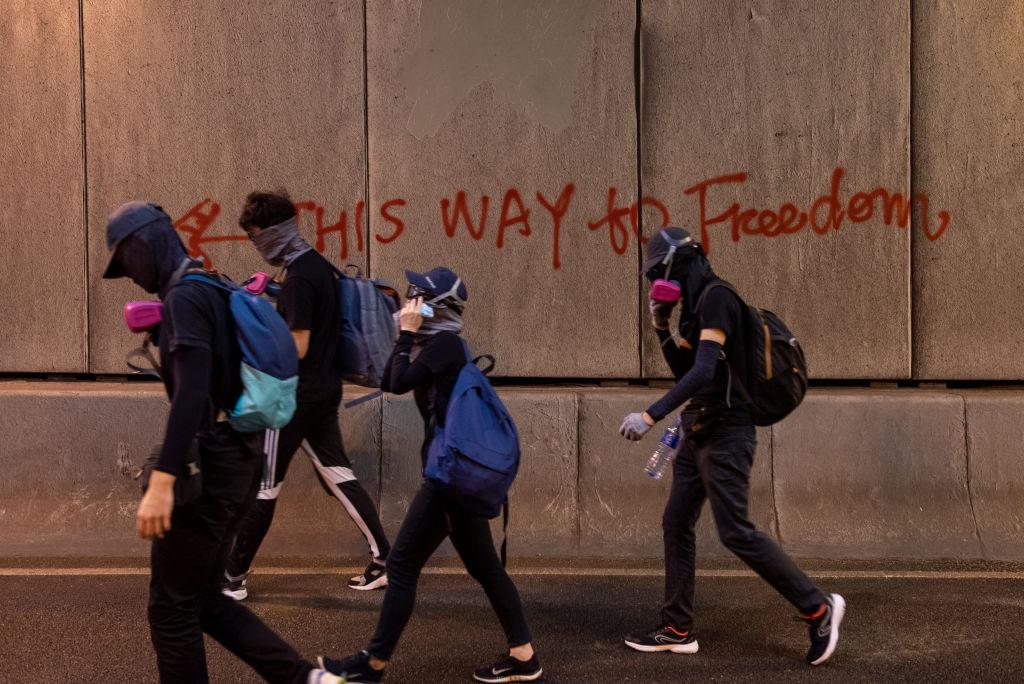Bringing Hong Kong back from the brink
Posted By Keith B. Richburg on September 2, 2019 @ 14:45

After 13 straight weekends of unrelenting protests and an increasingly harsh police response, Hong Kong’s worst political crisis since its reversion to Chinese sovereignty in 1997 appears to have become an intractable stalemate with no clear way out.
The territory’s Beijing-backed chief executive, Carrie Lam, has openly rejected all the protesters’ demands, including a formal withdrawal of her widely reviled China extradition bill, which triggered the unrest; an independent inquiry into police violence; amnesty for arrested demonstrators and dropping the labelling of the protests as ‘riots’; and restarting Hong Kong’s stalled political reform process. Lam seems to believe that she can quell the protests through attrition, waning public support and brutal police force, including mass arrests.
The protesters, on the other hand, seem undeterred by the escalating police actions. At the weekend, riot police raided subway stations and train carriages, indiscriminately clubbing suspected demonstrators with batons, and widely firing tear gas, rubber bullets and chemical dye from water cannon. Public support seems undampened and popular ire is directed more at the police than at the handful of radical demonstrators.
But there is a way out of the impasse, before violence takes Hong Kong into the abyss. It’s a solution that would require a series of compromises from both sides, involving painful short-term and long-term concessions that both sides might be loath to accept. It may just bring Hong Kong back from the brink.
The first step is the easiest: Lam must formally withdraw the extradition bill. She has already announced that the bill is suspended, or in her words ‘dead’. But she’s playing semantic games. ‘Dead’ is not a legal term. The public fears that, without a formal withdrawal, she could bring it up again for a second and decisive reading before the current legislature’s term expires next summer.
By avoiding the formality of an official withdrawal, Lam is clearly only trying to save face—either her own, or that of the Chinese Communist Party leaders in Beijing, who are reportedly averse to any sign of concession to protesters. Withdrawal would amount to a public admission that the bill was unnecessary and a mistake. But the time for face-saving is long past. In the current atmosphere of mistrust, failure to withdraw the bill only fuels suspicion that Lam has a hidden agenda to reintroduce it once passions cool.
The second concession is far more difficult. The government should establish an independent commission to investigate violence on all sides—by the protesters and police—and then grant amnesty from prosecution to anyone who engaged in unlawful acts.
People on both sides are likely to be critical of any such arrangement. Ordinary citizens want to see prosecutions for police who hid their identification numbers and beat subdued demonstrators with batons, who sprayed tear gas inside of subway stations and shopping malls, and who appeared to collude with gangsters by deliberately delaying their response to a 21 July triad attack on commuters at Yuen Long.
Likewise, police and government supporters will be incensed to see amnesty given to young protestors who defaced the Chinese emblem and threw the Chinese flag into the harbour, who threw bricks and other projectiles at police, and who defied police bans to organise large-scale marches.
There is a precedent; South Africa in the 1990s, after the end of apartheid, launched a ‘Truth and Reconciliation Commission’ to help heal the wounds of that divided country. The idea was that the commission would allow for a public airing of all crimes committed, but that the polarised country could only move forward if amnesty were granted to both sides.
At the time, the South African panel was derided by some as a ‘Kleenex Commission’ that would merely whitewash away the many sins of the violent apartheid era. But I covered South Africa in the lead-up to the first democratic elections, and I thought a race war seemed inevitable. The Truth and Reconciliation Commission, it turned out, was a brilliant way to resolve lingering grievances and allow the country to heal.
Perhaps the most difficult final step in Hong Kong will be to restart the political reform process, and here, too, both sides must accept painful concessions. The protesters must recognise that Beijing will never allow any future electoral system that leaves the outcome unknown. And Beijing’s communist leaders must accept that Hong Kong’s unrest will never be contained until people are given some say in how they are governed.
The concession will look much like the reforms rejected in 2014, which launched the Umbrella Movement, five years ago this month. Beijing could set up a selection committee that vets all the candidates for Hong Kong chief executive. Candidates would have to swear allegiance to the Chinese constitution and disavow independence—Beijing’s main ‘red line’. Then Hong Kong’s people should be given a free vote to choose among the approved candidates.
Would that be truly democratic? Not by a long shot. Is it better than the system now, where the leader is chosen by just 1,200 people, mostly pro-China figures, sitting as an ‘electoral college’? Absolutely.
Hong Kong’s current crisis is the result of the absence of politics. The chief executive and the cabinet were never elected, are unrepresentative and do not have to answer to ordinary Hong Kongers. Average citizens also feel they have no stake in a leadership system that ignores their needs, serves mostly the wealthy elite, and is answerable only to Beijing. Even a partially democratic system that lets people choose from among approved candidates is better than people having no vote and no stake at all. And that system would allow Hong Kong’s leader to claim a mandate to govern.
All of these steps would require compromise and clear-headed thinking. They can still pull Hong Kong back from the brink—if it’s not already too late.
Article printed from The Strategist: https://aspistrategist.ru
URL to article: /bringing-hong-kong-back-from-the-brink/
Click here to print.